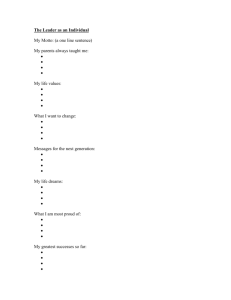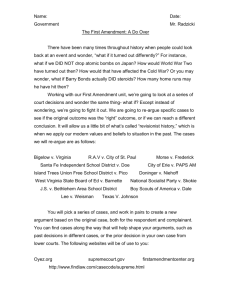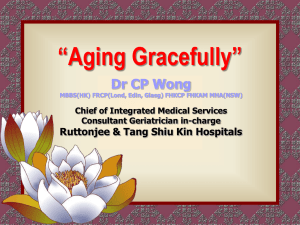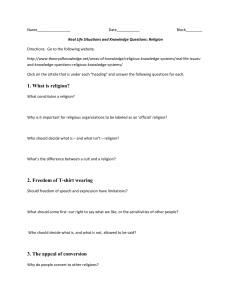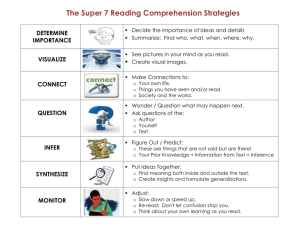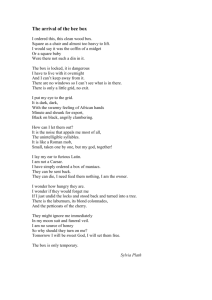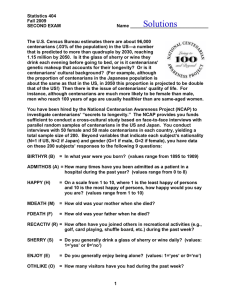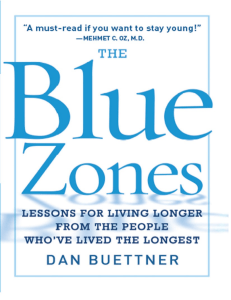Spring 2013 by Edward F. Ansello, Ph.D.
advertisement
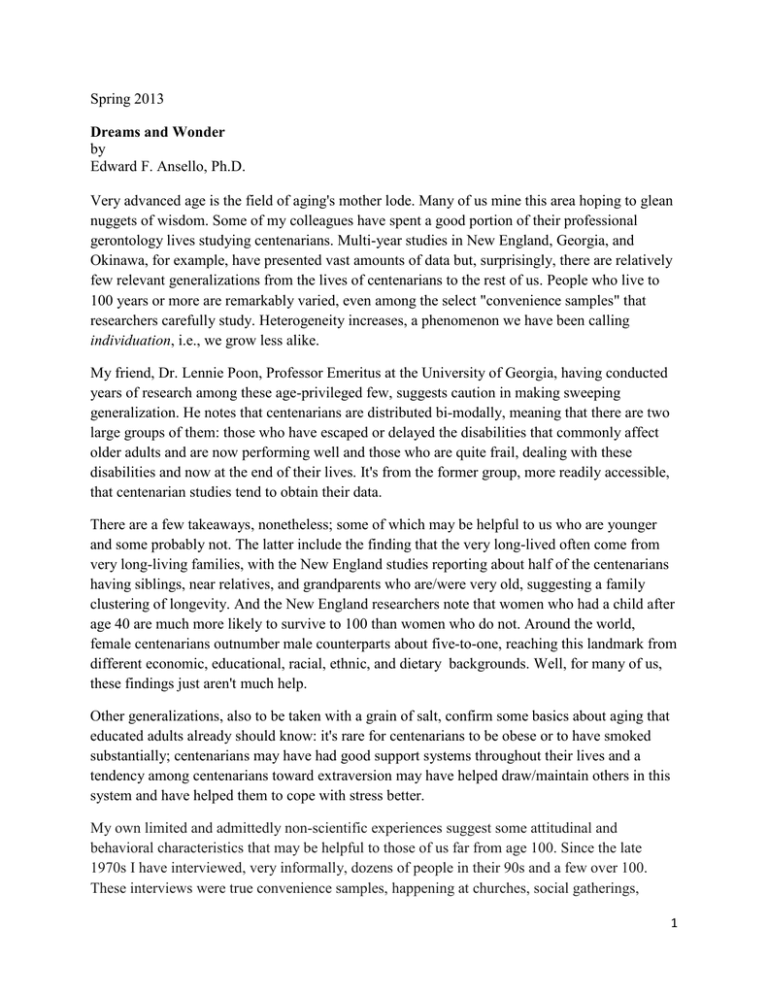
Spring 2013 Dreams and Wonder by Edward F. Ansello, Ph.D. Very advanced age is the field of aging's mother lode. Many of us mine this area hoping to glean nuggets of wisdom. Some of my colleagues have spent a good portion of their professional gerontology lives studying centenarians. Multi-year studies in New England, Georgia, and Okinawa, for example, have presented vast amounts of data but, surprisingly, there are relatively few relevant generalizations from the lives of centenarians to the rest of us. People who live to 100 years or more are remarkably varied, even among the select "convenience samples" that researchers carefully study. Heterogeneity increases, a phenomenon we have been calling individuation, i.e., we grow less alike. My friend, Dr. Lennie Poon, Professor Emeritus at the University of Georgia, having conducted years of research among these age-privileged few, suggests caution in making sweeping generalization. He notes that centenarians are distributed bi-modally, meaning that there are two large groups of them: those who have escaped or delayed the disabilities that commonly affect older adults and are now performing well and those who are quite frail, dealing with these disabilities and now at the end of their lives. It's from the former group, more readily accessible, that centenarian studies tend to obtain their data. There are a few takeaways, nonetheless; some of which may be helpful to us who are younger and some probably not. The latter include the finding that the very long-lived often come from very long-living families, with the New England studies reporting about half of the centenarians having siblings, near relatives, and grandparents who are/were very old, suggesting a family clustering of longevity. And the New England researchers note that women who had a child after age 40 are much more likely to survive to 100 than women who do not. Around the world, female centenarians outnumber male counterparts about five-to-one, reaching this landmark from different economic, educational, racial, ethnic, and dietary backgrounds. Well, for many of us, these findings just aren't much help. Other generalizations, also to be taken with a grain of salt, confirm some basics about aging that educated adults already should know: it's rare for centenarians to be obese or to have smoked substantially; centenarians may have had good support systems throughout their lives and a tendency among centenarians toward extraversion may have helped draw/maintain others in this system and have helped them to cope with stress better. My own limited and admittedly non-scientific experiences suggest some attitudinal and behavioral characteristics that may be helpful to those of us far from age 100. Since the late 1970s I have interviewed, very informally, dozens of people in their 90s and a few over 100. These interviews were true convenience samples, happening at churches, social gatherings, 1 nursing homes, senior centers, through chance meetings and introductions, and so forth. As to be expected, most of the people with whom I spoke were women. Again, I was struck by the remarkable heterogeneity of those I interviewed, from a woman in Okinawa eating twice-cooked pork in a restaurant to another at a senior center in Maryland doing crewel embroidery work. Over the years I have identified a fairly common set of traits among the very long-lived people I have met. I hasten to say that what follows is neither prescriptive nor universal, and it is hardly quantitative research. But I have been impressed by how many have dreams and a sense of wonder. I don't know if dreams and wonder have been characteristic all their long lives or if very advanced age had triggered these. All I can say is that at the time when I have met folks in their 90s and 100s, many held a dream, something they wished to accomplish, and/or demonstrated a sense of wonder, an amazement at a discovery or delight in an unexpected experience. The dreams being held by the super-aged may have been to learn to play an instrument, learn a language, understand the computer, travel to some never-visited or long-favorite destination, do something physically, and the like. The sense of wonder was expressed as delight in meeting a child especially good at drawing or music or puzzles, sheer pleasure to see patterns in a kaleidoscope lens, amazement with the night's stars, or even noticing a dramatic display of clouds or a rainbow. I recall vividly an evening when I met a 98-year old woman who so clearly typified this sense of wonder. I was to speak at a church's adult ministry meeting one weekday night. I was unfamiliar with the location of the meeting so I arranged to meet the evening's hosts at a convenient location and to have me follow them to our destination. When we met, the hosts persuaded me to ride with them so we could talk in advance of the evening's session. But first, they said, we had to pick up the 98-year old church member. It was a summer early evening and there had just been a sudden and intense thunderstorm. The post-storm air was humid but fragrant in ways summer storms can create. When we arrived at the older woman's house, she was standing on her front walkway bent over, apparently staring intently at something. We approached and she pointed out a large web formed by a spider in the crook of the downspout at the corner of her house. The web had captured a number of raindrops and they glistened opalescently in the setting sun. She marveled, "Look at God's creation. How wonderful." This happened about 15 years ago. Sometimes, after a summer storm, I recall her, bent over to look closely at that glistening spider's web. While it may not be scientific and may fall more appropriately under the heading of story-telling, this experience spoke to me about super longevity. Many of the very old possess dreams that push or pull them; these seem to act as goals still ahead. Perhaps this orientation to a future impels their continuation. More importantly for 2 me, their future is not mere existence but rather a time of vibrant appreciation of the world around and within them, an openness to the talents of others and the handiwork of God or nature. Dreams and wonder can, I think, be cultivated before one is super-aged. Having aspirations, however plain, and learning to open oneself to others and to other things would seem to be part of the plasticity and malleability of the human experience. 3

